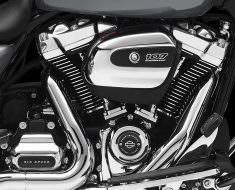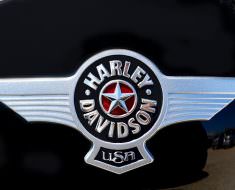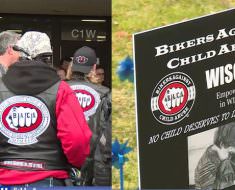Attempts by the federal government to seize the Devils Diciples Motorcycle Club trademark have come to an end. For now. Federal prosecutors have dropped a controversial bid to seize the trademark, but this doesn’t mean the brakes have been pulled on all trademark challenges involving motorcycle clubs.
Still in the government’s cross hairs, notably, is the trademarked logo for the Mongol Nation, a Southern California-based motorcycle club whose intellectual property has been sought by federal prosecutors since 2008.
A federal appellate court is now considering the Mongol Nation case.
“These trademark cases are important to the clubs, whose free association has been threatened by the attempts by (prosecutors) to enjoin use of their membership (marks) by non-indicted persons,” Devils Diciples attorney Fritz Clapp, a former longtime Sacramento resident, said Tuesday.
Members of the Mongols and the Devils Diciples call their organizations CLUBS, and aren’t happy with the word “gang” often used by enforcement officers who also refer to them as criminal enterprises.
Prosecutors began trying to seize the Devils Diciples’ trademark as a byproduct of a criminal case that culminated in the February convictions of six Devils Diciples leaders on drugs, firearms and other charges.
As part of their original Devils Diciples case, prosecutors in October 2014 itemized property they wanted to seize, from Glock handguns and Mossberg shotguns to slot machines and “two Devils Diciples bandanas.”
At the end of the 32-page property listing, prosecutors included the club’s trademark.
That trademark, including the deliberately rebellious spelling, consists of an upper arc framing the words “Devils Diciples,” a design with two crossed pitchforks over a spoked wheel, and the letters “M.C.”

If prosecutors had prevailed in their trademark-forfeiture effort, the government could have eventually owned the mark and protected its property interests, such as by demanding that club members surrender their treasured designs.
“I was pleased the (prosecutors) easily recognized that the facts and law favored my client, so that the matter need not be submitted to the court for decision,” Clapp said.
Clapp is a 70 year-old graduate of the University of the Pacific’s McGeorge School of Law, and he has also represented the Hells Angels in protecting the club’s intellectual property.
Other motorcycle clubs – ranging from the Thug Nomads and the Persecuted Souls to the Knights of Fire and the Immortal Soulz – have likewise secured trademarks for their names or logos, U.S. Patent and Trademark Office records show.
The still-simmering Mongol Nation case began when then-U.S. Attorney Thomas O’Brien unveiled in Los Angeles an indictment of 79 Mongols for a variety of offenses. As part of his campaign, O’Brien sought the Mongols’ trademarks.
“If the court grants our request . . . then if any law enforcement officer sees a Mongol wearing his patch, he will be authorized to stop that gang member and literally take the jacket right off his back,” O’Brien said at the time.
“In an audacious, novel move, a select group of the gang – so-called ‘full-patched’ members – federally registered two marks used by the gang to identify members and to terrorize enemies,” prosecutors wrote in an Aug. 8 filing.
Federal prosecutors, following an October 2008 operation dubbed “Black Rain,” in which 79 Mongol members rounded up from six states ultimately agreed to plead guilty to a host of charges, have labeled the Mongols an “outlaw motorcycle club.” Prosecutors allege the group is involved in crimes ranging from murder to drug dealing, and the government therefore has the authority to take control of the Mongols’ logo.
In addition to being a violation of club members’ free-speech rights, Yanny said, “more importantly, it’s a due-process issue.”
The government is attempting to punish the entire club of more than 700 members for the actions of a small fraction, he said, adding that those involved in the 2008 criminal case are no longer club members.
“They want to paint the whole group as bad because of it,” Yanny said. “These men are decent men.”
Many Mongols are former military members simply seeking camaraderie, he said.
The club’s constitution takes a zero-tolerance stance toward criminal activity, he added.
Sources: The Modesto Bee; Mongols MC







